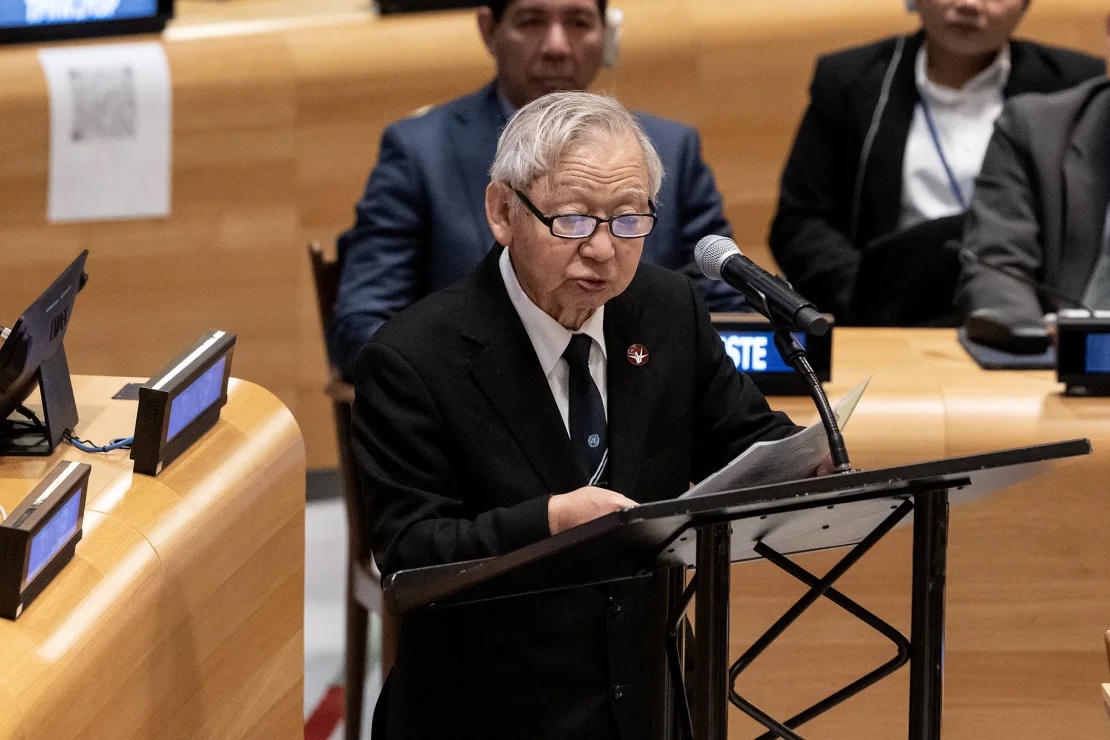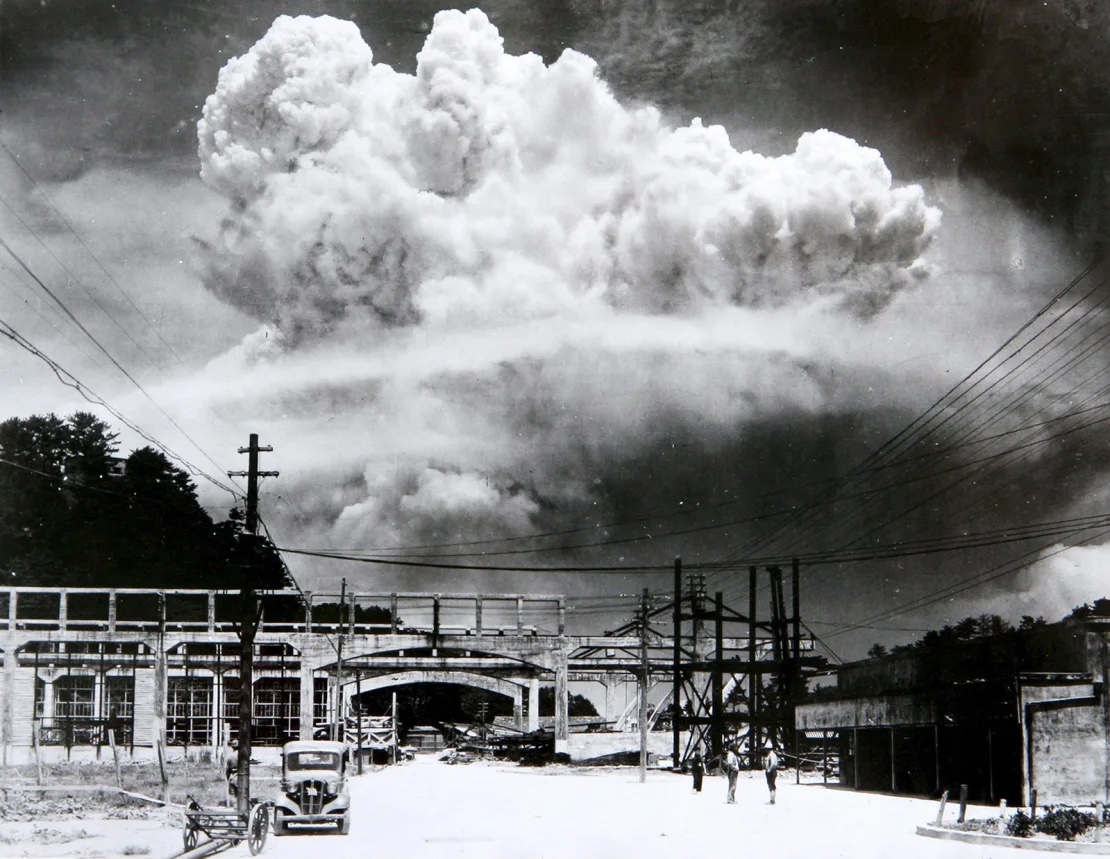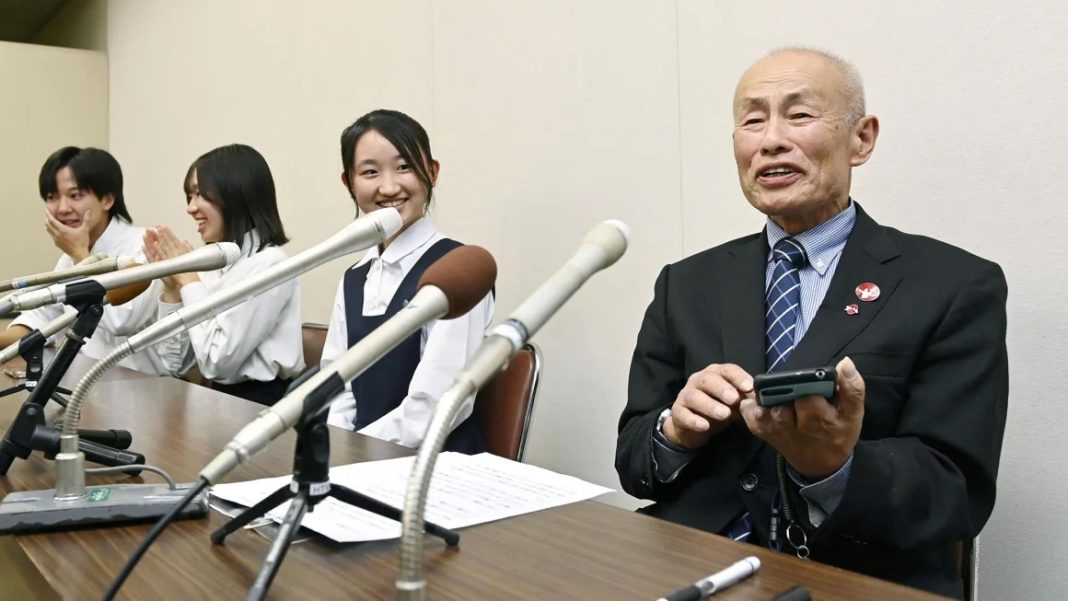OSLO — Nihon Hidankyo, a Japanese grassroots organization of atomic bomb survivors from Hiroshima and Nagasaki, has been awarded the 2024 Nobel Peace Prize for its tireless efforts “to achieve a world free of nuclear weapons.”
The Norwegian Nobel Committee praised the group for its dedication to ensuring that the horrors of nuclear warfare are never repeated, emphasizing the significance of witness testimonies from survivors.
Formed by survivors of the only two nuclear bombs used in warfare, Nihon Hidankyo, also known as Hibakusha, has worked for decades to raise awareness about the devastating effects of nuclear weapons and to campaign for global disarmament.
“The Hibakusha help us to describe the indescribable, to think the unthinkable, and to somehow grasp the incomprehensible pain and suffering caused by nuclear weapons,” the committee said while announcing the prize in Oslo on Friday, October 11, 2024.
A Legacy of Pain and Advocacy
Nihon Hidankyo was founded in 1956 when local groups of atomic bomb survivors from Hiroshima and Nagasaki joined forces.
The organisation has since collected thousands of witness accounts from survivors and regularly sends delegations to the United Nations and international peace conferences, advocating for nuclear disarmament.
The United States dropped the first atomic bomb on Hiroshima on August 6, 1945, killing around 80,000 people instantly.
A second bomb was dropped on Nagasaki three days later, killing another 70,000. In the years following the attacks, tens of thousands more died from radiation exposure.
Many survivors, referred to as Hibakusha, suffered lifelong health problems and emotional trauma.
Despite their personal suffering, Hibakusha have dedicated themselves to ensuring that the world never forgets the devastation caused by nuclear weapons.
The Nobel Committee commended Nihon Hidankyo for shedding light on the “concealed and neglected” fates of the survivors.

Global Recognition and Support
Dan Smith, director of the Stockholm International Peace Research Institute (SIPRI), applauded the Nobel Committee’s decision.
“The Hibakusha remind us every day that nuclear war can never be won and must never be fought,” he said.
“The bomb on Nagasaki was the second time a nuclear weapon was used in war: Let it be the last!”
Japanese Prime Minister Shigeru Ishiba also welcomed the award, calling it “extremely meaningful” that Nihon Hidankyo’s decades of work toward nuclear disarmament have been recognized.
Sueichi Kido, a survivor of the Nagasaki bombing and a prominent member of Nihon Hidankyo, was visibly moved during a speech at the United Nations last year.
“The suffering of survivors is not over,” Kido said, urging the world to work towards the elimination of nuclear weapons.
A Critical Moment for Disarmament
This year’s Nobel Peace Prize comes at a time when the global taboo against the use of nuclear weapons is increasingly under threat.
SIPRI’s 2024 report revealed that nuclear-armed states, including the U.S., Russia, China, and North Korea, continue to modernize and expand their arsenals.
The global nuclear stockpile currently includes 12,121 warheads, of which nearly 9,600 are operational.
“The global total of nuclear warheads continues to fall as Cold War-era weapons are dismantled, but the number of operational warheads is increasing year by year,” Smith said, describing the trend as “extremely concerning.”
The rise in nuclear threats has become particularly pressing since Russia’s invasion of Ukraine in 2022. Russian President Vladimir Putin has repeatedly hinted at the potential use of nuclear weapons, prompting concerns about the erosion of long-standing international norms.
Henrik Urdal, director of the Peace Research Institute Oslo, said Nihon Hidankyo’s Nobel Prize “comes at a crucial time when nuclear threats are on the rise.”
Urdal noted that the Hibakusha’s message is vital, not just for recalling the past, but for confronting the potential dangers posed by modern advancements in weaponry.

Honouring the Past, Securing the Future
Friday’s award ceremony marked the 105th time the Nobel Peace Prize has been awarded since 1901.
Nihon Hidankyo joins the ranks of previous laureates who have worked toward nuclear disarmament, including the International Campaign to Abolish Nuclear Weapons (ICAN) in 2017, and the Pugwash Conferences on Science and World Affairs in 1995.
As the 141st Nobel Peace Prize laureate, Nihon Hidankyo will receive a cash award of $1 million in a ceremony set to take place in December.
The committee emphasised that the decision to honour the organisation is rooted in Alfred Nobel’s will, which sought to reward those who worked for the “abolition or reduction of standing armies” and the promotion of peace.
Jørgen Watne Frydnes, chair of the Nobel Committee, concluded the announcement by stating, “The stories and testimonies of the Hibakusha are an important reminder of how unacceptable the use of nuclear weapons is.”
The Hibakusha’s relentless pursuit of peace ensures that the memories of Hiroshima and Nagasaki will continue to inspire efforts toward a world without nuclear weapons, as they remind us of the human cost of these devastating tools of war.







